Functional genomics are a crucial step for understanding the function of genes and gene products. For recalcitrant plants like roses, we developed different systems to test gene functions at different levels.
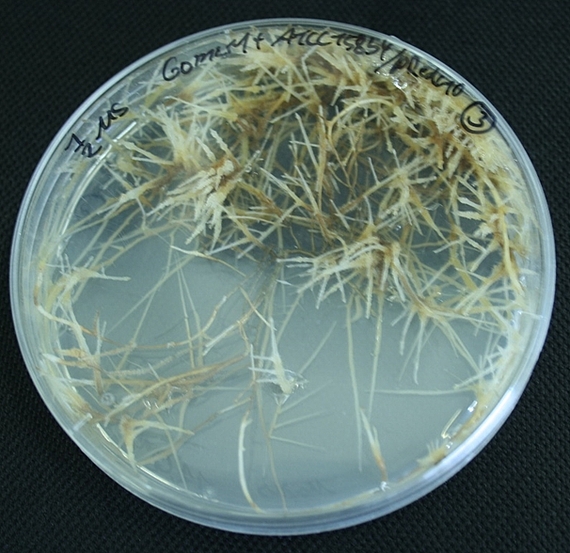
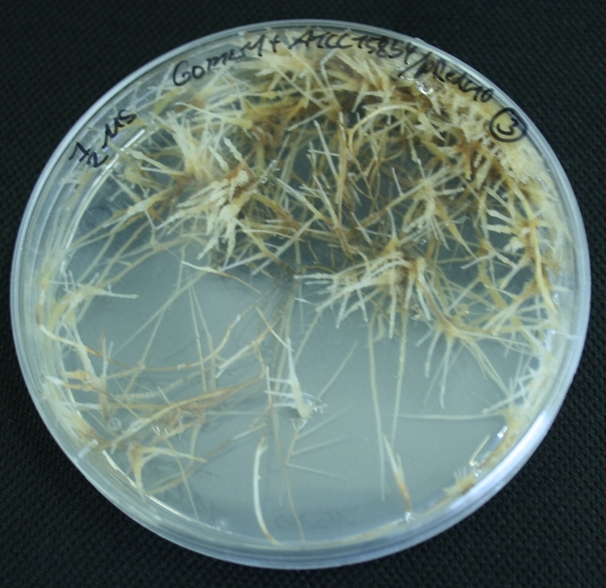

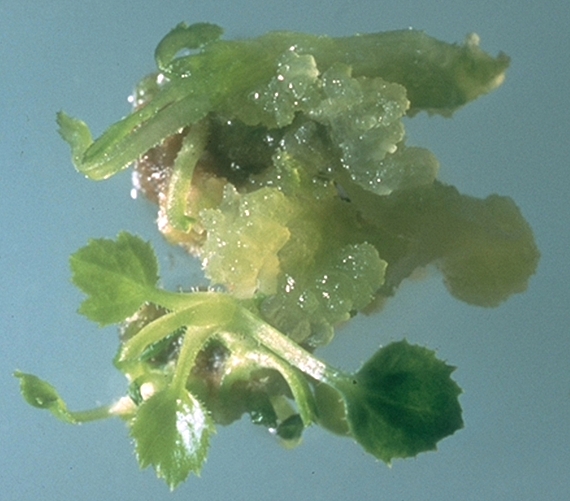
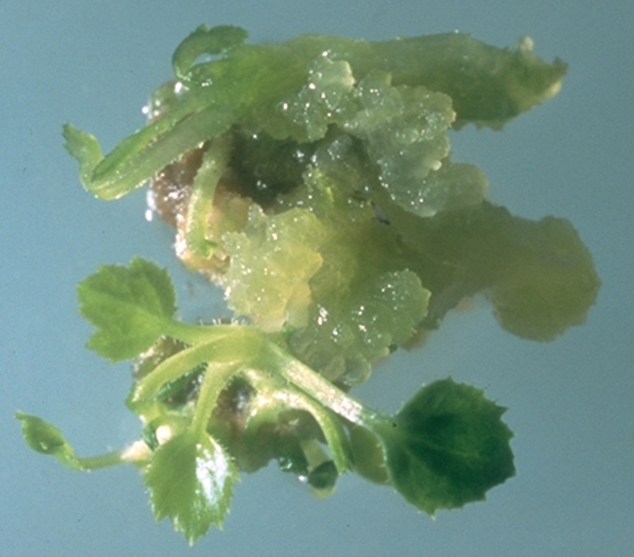

Transgenic roses
Roses are considered to be recalcitrant to transformation. However, certain genotypes can be genetically modified by regeneration of somatic embryos, transformation of embryos via Agrobacterium tumefaciens and subsequent adventitious shoot regeneration. In our group, transgenic roses have been generated to analyse several important traits as for example resistance to black spot and powdery mildew.
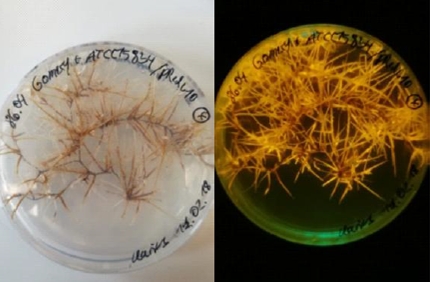


Hairy roots in roses and potato
An alternative route to stable transgenic tissues is the induction of hairy roots which will lead to transgenic tissues much faster than via somatic embryos. Traits related to roots (e.g. nematode resistance) can be immediately screened at this level but experiments to knock out or overexpress genes can be tested as well in hairy roots.



Transient expression assays
Transient expression assays have been developed in roses to elucidate function and expression levels of rose genes and are based on the infiltration of Agrobacteria into leaves or petals. As the expression levels are strongly genotype dependent this is done in selected genotypes which allow high expression levels. The systems has been used to express candidate genes for black spot resistance and downregulation and overexpression of MLO genes of roses.


